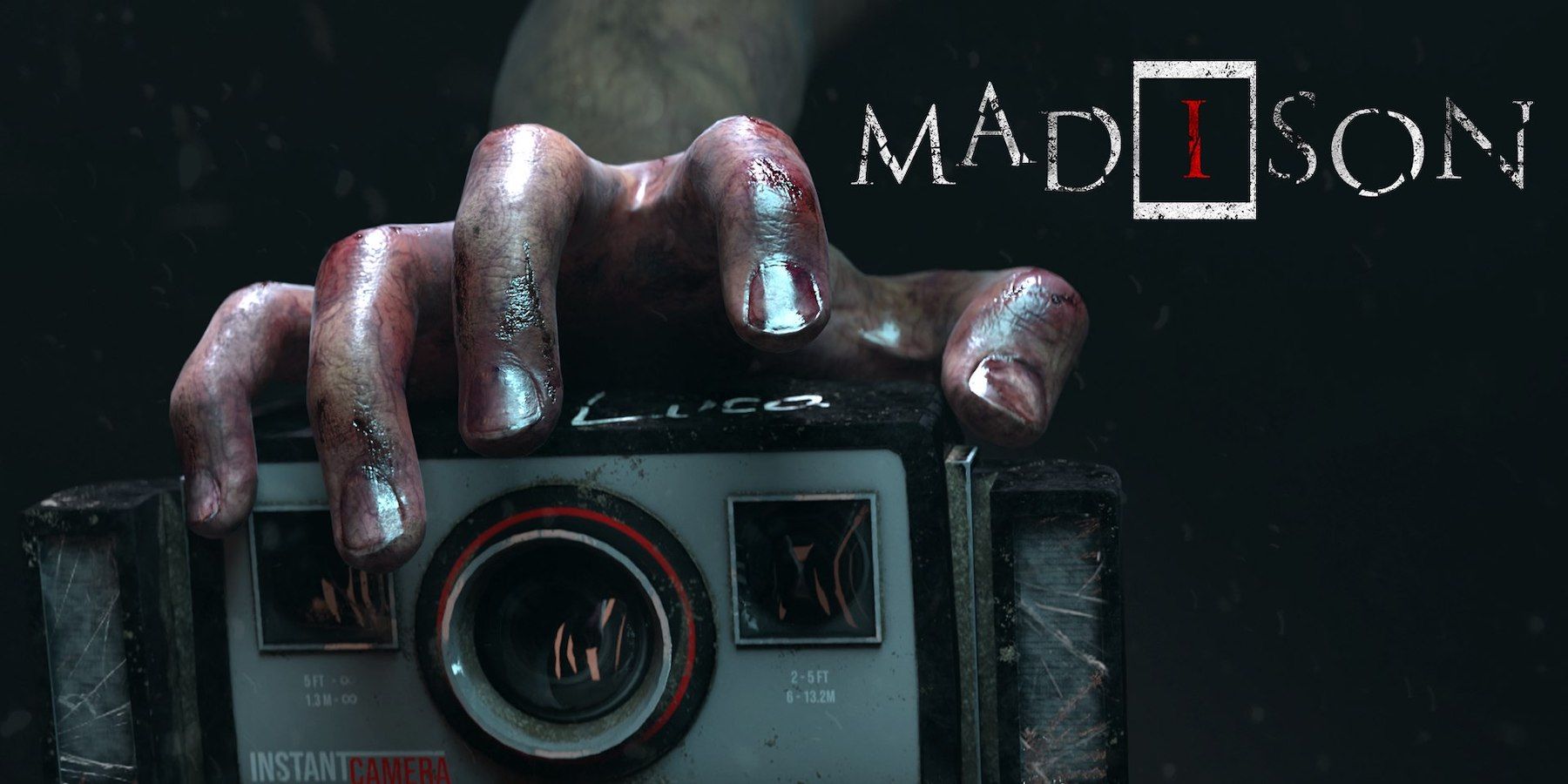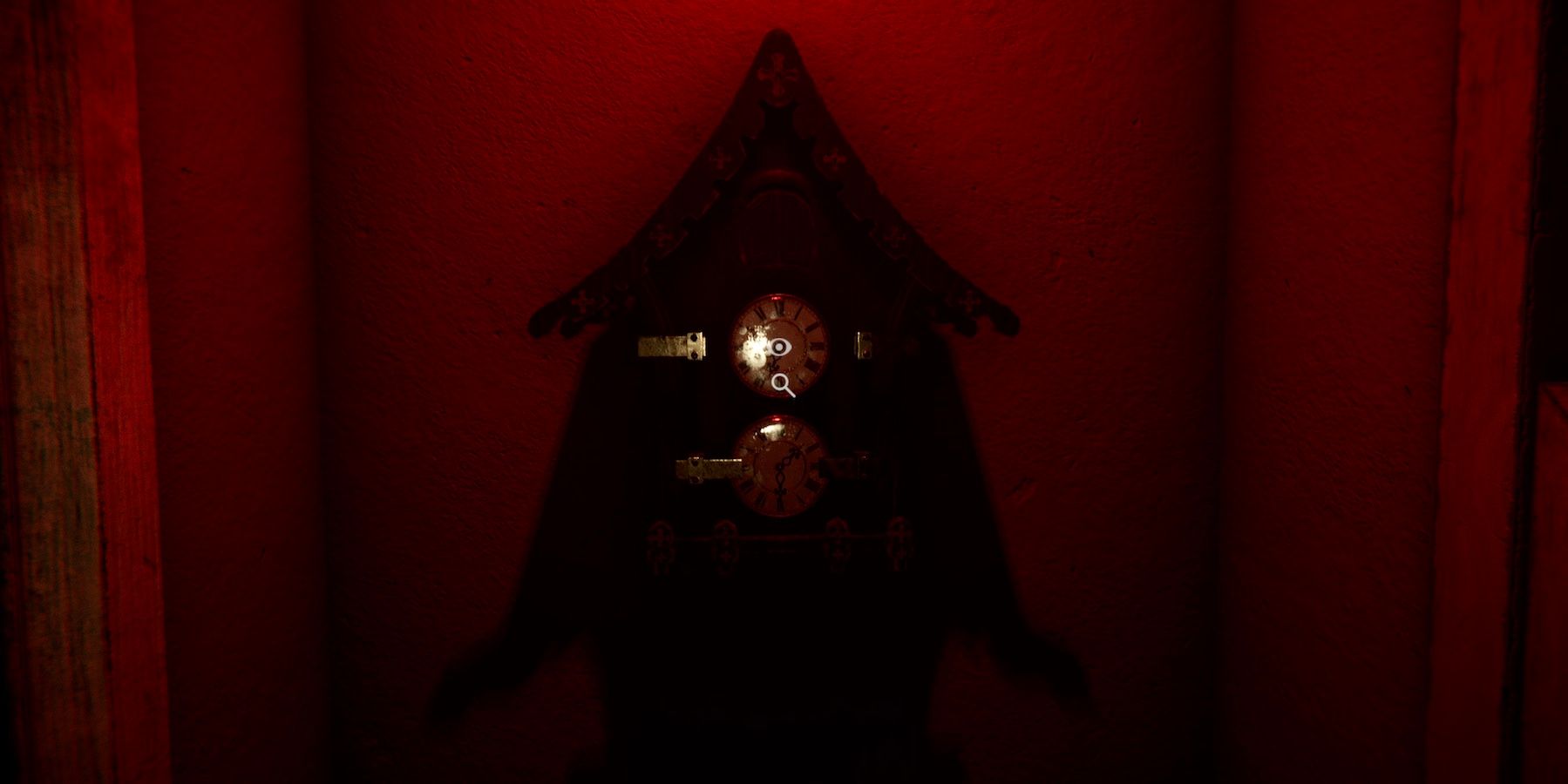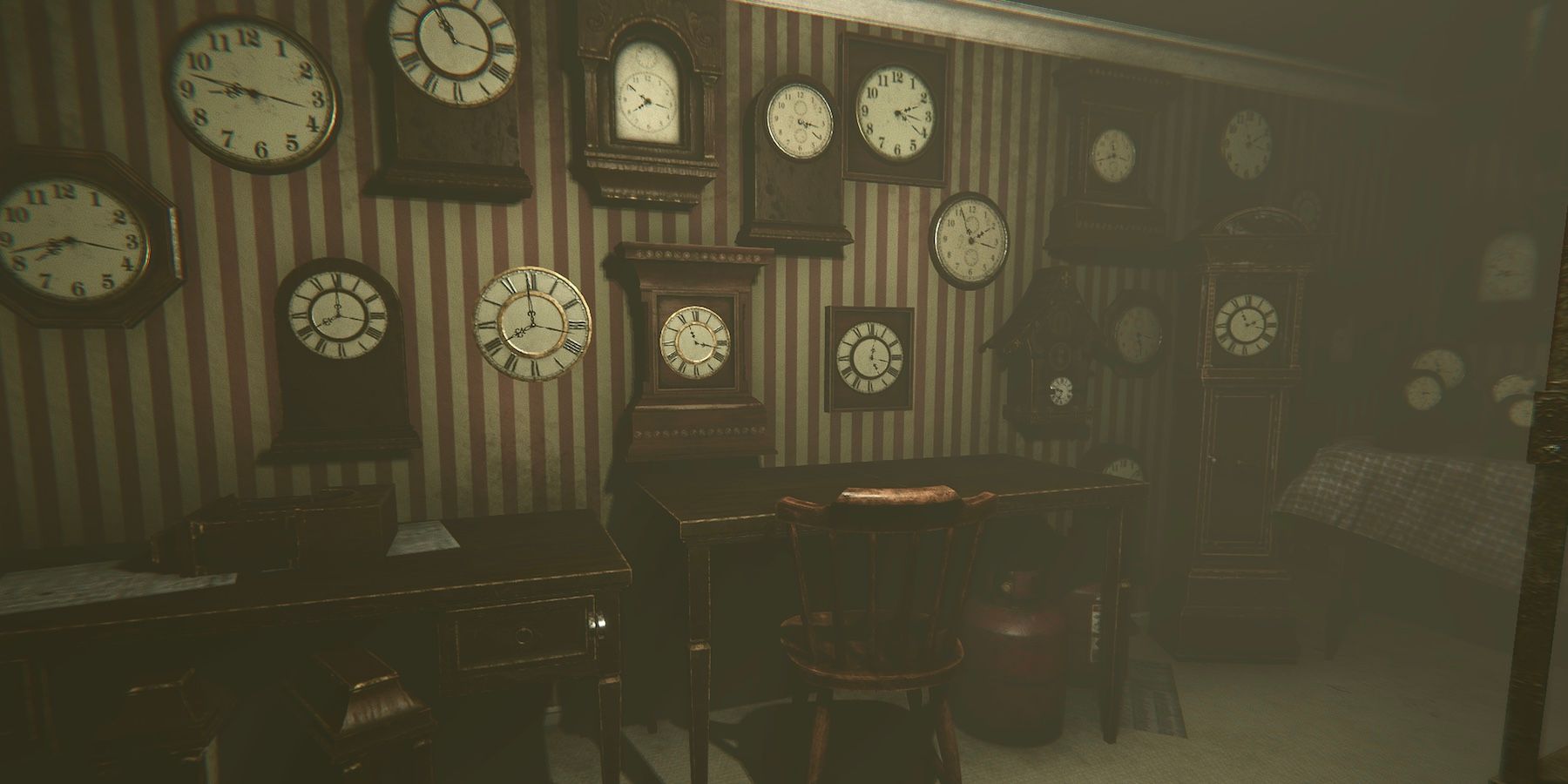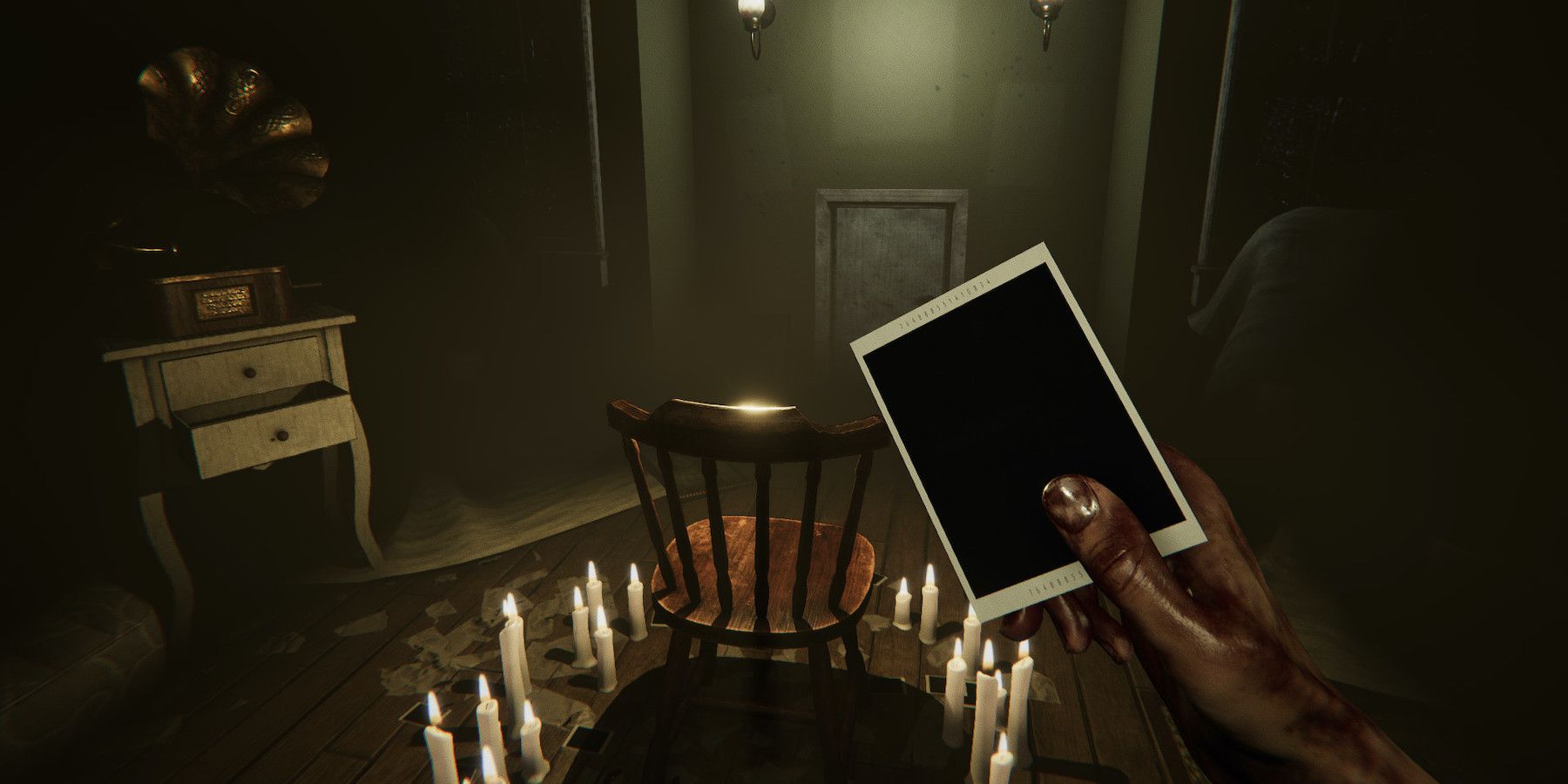MADiSON, the debut title from developer Bloodious Games, is a first-person puzzle horror game in which players control Luca, a teenage boy with a penchant for photography and mutilation. In MADiSON, players solve various puzzles to uncover clues about a mysterious serial killer, a demon possessing a children's book, and Luca's dead family. Along the way, they watch Luca get tormented mentally and physically by malicious entities who either want to inhabit the living realm using his body or kill Luca.
Veteran players familiar with common horror tropes may initially view MADiSON as an Outlast or P.T. clone. While the game does seem to take inspiration from those games, it also distinguishes itself with its Polaroid camera mechanic. MADiSON requires players to snap photos of various objects to progress through the puzzles, and the camera can also be used to light up dark areas and fend off demons.
MADiSON uses this mechanic well to create subtle horror. In one segment, Luca walks down a hallway to his grandparents' living room after surviving a terrifying encounter. A statue previously located at the end of this hallway is suddenly shrouded in darkness and red lighting, and it looks... off. By snapping a picture and waving it about to clear it, players see that the image is bloodied and burnt – the telltale sign of the game's main antagonist. Without even displaying an image on the photo, MADiSON fills the player with dread simply by implying danger is ahead.
Bloodious Games creates a tension that is palpable from beginning to end, primarily due to the phenomenal sound design. Creaking wood, slamming doors, and unnerving voices keep the player on edge. Picture frames clatter to the ground unexpectedly and shadows move suddenly in Luca's peripheral vision. Even though some cues get repetitive, they never fail to unsettle the player. There's no time to relax, and the sound design reinforces that.
Capping the excellent sound design is the phenomenal voice acting, particularly from Luca's voice actor, Jacob Judge. Luca's fear and pain are evident based on the way he talks and groans his way through the events of the story. Although many lines are read in similar tone, it's nonetheless refreshing to hear a horror protagonist speak like they're actually in mortal danger. The other voice actors, though sparsely used, are just as captivating in their delivery.
MADiSON also incorporates overt horror in the form of jump scares. Some of them are completely unpredictable and caused genuine terror when they happened. Newer players may be caught off guard by them, but longtime horror players will likely see them coming. Unfortunately, the game relies on them heavily, and by the end, they feel cheap and frustrating rather than scary. Their increasing frequency as the game progresses becomes more of a nuisance than a scare. They're especially problematic during the final puzzle, which sends player back to the start if they are "jump scared."
MADiSON's puzzles are quite challenging, which may feel rewarding for players seeking a higher-difficulty horror game. The answers are not always obvious and require some deduction skills to figure out. There's a wide variety of puzzles – though many still fall into the adventure game "find an item and use it" trope – and scares are littered throughout them. Best of all is that players revisit locations seen at the beginning of the game regularly, adding a lot of depth to the environment.
The only downside of this higher challenge level is that the path forward is sometimes unclear, so players may need a guide to know what the next step is, especially if they're playing on the hardest difficulty. Even on the easiest difficulty, players may get stumped about their next steps. Luca occasionally offers hints through dialogue and drawings in his notebook, but they are extremely vague and don't always point out the way forward.
The game features high-quality textures and fantastic visual and level design, which is not common with most indie horror games. A lot of care was put into designing each location Luca visits, from his grandparent's home to a sprawling cathedral from the 1980s. Particularly, the attention to detail in the dilapidation of the house is excellent. Although most places are not visually stunning, they perfectly capture the haunting atmosphere the game strives for.
Where MADiSON drops the ball is the story. It's not hard to figure out: a demon is trying to possess Luca through a macabre ritual involving dismemberment and sacrifices. That predictability is precisely where the story falters. By the middle of the game, players can easily guess how the ending plays out. This makes subsequent playthroughs pointless except for achievement hunting.
The story also suffers from a lack of connection between the three demons: Madison Hale, Blue Knees, and Hans Gouring. Madison is a serial killer and the demon trying to possess Luca, Blue Knees is a completely separate demon who tortured his grandmother because she read its book, and Hans Gouring is a third demon who ran a gas chamber during World War 2. Each demon is its own entity and has no obvious connection to any other demon. While this allowed the developers more flexibility to create fun and unique segments for each demon, in the big picture, it's unclear to the player why all these demons are crashing down on Luca's home and torturing him and his family.
Although the story doesn't deliver anything fresh, it serves the game well and provides a platform for the game's excellent design and well-crafted horror. Go into MADiSON without any pretense of a groundbreaking story to find a terrifying journey through the minds of pained and neglected killers. Overall, MADiSON is a great first game by a new developer and is sure to provide plenty of scares.
MADiSON is available on PC, PS4, PS5, Xbox One, Xbox Series X/S, and Switch. GameRant received a PS5 code for this review.




